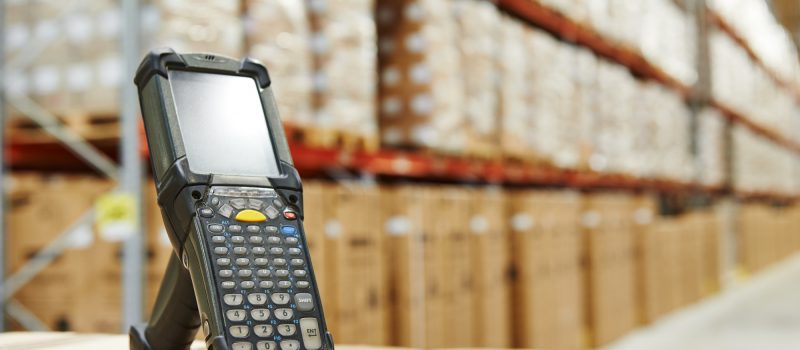One thing that every business needs, especially a warehouse business, is a top-notch barcode scanning system.
If you are considering starting your search or if you’re having trouble finding the right one, here are 9 tips that can help you out.
What Are You Using It For?
Like most things, the first step is to know what you need the specific device for. There are many reasons to need a barcode scanner system, and once you know that, well that’s half the battle.
Here are just a few things that you really need to ask yourself before you start shopping around,
- What kind of environment will you be using it in? Is it a rugged environment, for example?
- How often will you be using it?
- What kind of barcodes will you be reading?
- How will the scanner be used?
- Can you stay connected to a PC?
Knowing the answer to these questions will let you know what scanner type, form factor, and other options you will need to consider.
Select a Comfortable Scanner
This doesn’t seem like a very important factor, but you have to think that employees will be carrying it around for their entire shift.
Any scanner that you buy needs to not only be able to handle any harsh environment you may be working in but also be lightweight and easy to carry around.
Your employees need to be able to comfortably carry the scanner and aim them at barcodes without the risk of motion injury.
Wireless Connection
It is important to consider the factor of wireless connection when deciding on a barcode scanner.
If your employees scan barcodes from a centralized location than a scanner that transmits data through WIFI might be the best option for you.
Transmitting data through a WIFI connection can be beneficial because it helps you keep your inventory up to date at all times.
It is visible to any employee that has access to it making it great for maintaining your inventory.
A wired connection can be important but in some cases, it can be best to go with a wired model.
Wired Connections
If you are using a locally installed inventory system than wired connections are extremely important.
Make sure the one that you chose is compatible with the computer system that your company uses.
Sometimes scanners that use a wired connection also have a wired one, so take that into consideration when making your purchase.
1D or 2D
To clarify 1D and 2D are two different barcode types. On one hand, 1D is typically a linear barcode, like the UPCs you see in retail jobs. Yet, 2D codes use a larger amount of data these include a QR code or data matrix. The scanner you need depends on which of these barcode types you deal with.
2D barcodes will require a larger, image-based scanner while a 1D just needs a standard laser or imager.
Images are typically more durable and can take photos, and read text. The other factor for which ones of these you should choose depends on how far away you will be scanning the barcode from.
Screen
Not all scanners come with a screen, but they are very helpful additions to any barcode reader.
It can provide your employees with helpful transaction feedback, for example letting them know if there were any errors in the items that they scanned.
Scanners with screen typically have worlds of more capabilities than those who do not. You can push and pull data from your inventory system and it really does do away with much human error.
If the scanner doesn’t have a screen your employee cannot see when they have made an error. This can be fixed in the system later, but that takes time and puts a cog in the overall accuracy of your inventory.
Environment
There are many environmental factors that may tamper with the reliability of a scanner.
When working in a warehouse you have all sorts of airborne debris, dirt, and moisture, you will need a scanner with a high IP rating.
There are scanners that are designed to exist in harsher environments like healthcare where they will be surrounded by sterilization chemicals.
These types of scanners may cost you a tad bit more but because they will last longer, it will all be worth it in the end.
Can You Take It Anywhere?
In retail environments, employees will have to scan items at many different angles. You want to make this a little bit easier on them.
In this scenario, a cordless option is the way to go, not only for productivity reasons but also for comfort.
For these mobile computers and cordless scanners, make sure they offer enough battery life to get the job done. Coming from experience, you don’t want your employees to run out of battery life when they aren’t even halfway through the job.
GPS
Having a GPS, while less important than the factors listed above, is a neat feature you might want to take into consideration.
It’s good for when you have items moving to various different storage locations. For instance, GPS can keep track of item locations as you scan them.
This just ensures that you always know where all of your items are at, at all times. You’ll never lose anything.
Taking in all of this, if you are ready to start the browsing process, Intermax is a great place to start.
For similar articles on software information, go here.
Choosing a Barcode Scanning System
With all the different models and features choosing a barcode scanning system for your business can be hard.
You need to take into consideration what you are using the system for, first and foremost. and then go from there.
For more business tips and tricks, visit us here.

